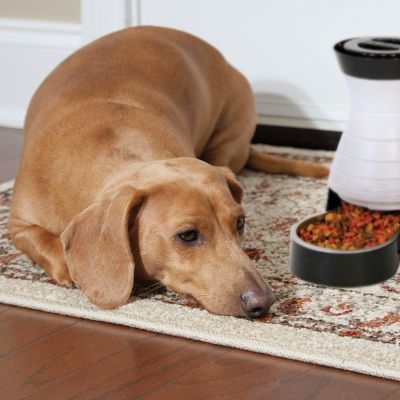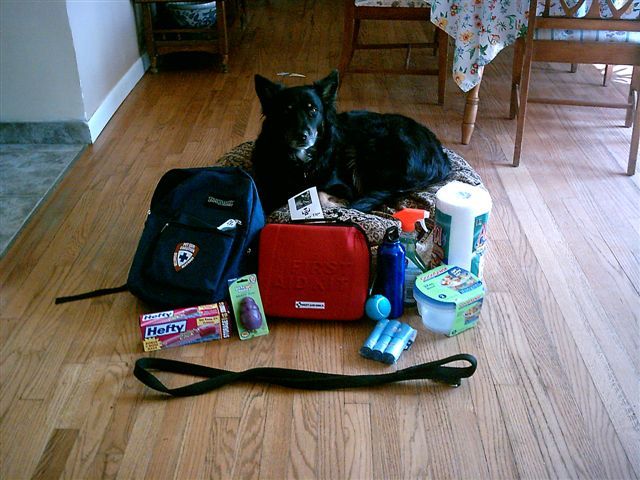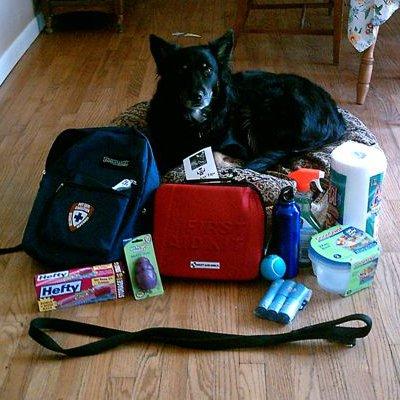Emergencies with pets happen every day, and being prepared is important. When in doubt about the need to seek medical attention for an injured or sick pet, always err on the side of caution and ask your veterinarian. Don't delay in seeking veterinary care if you think there could be a problem. Better to be dead wrong about a minor medical problem than to have a pet who’s worse off due to a delay. Peace of mind is priceless.
Q: Which household items should you never reach for in an emergency or without talking with your vet first?
Many of the medications used in treating our pets are the same ones used in people. The amoxicillin your personal physician or pediatrician prescribes is just the same as the amoxicillin that I might prescribe to treat your cat's abscess.
But several important differences exist between us and our pets. Acetaminophen is the main ingredient in Tylenol, which we use for the everyday aches and pains of life, and it can cause deadly consequences if given to a cat. It can also make dogs very sick.
Here are some of the many over the counter drugs that should never be used on your dog or cat.
- Ibuprofen Advil - Causes kidney and gastrointestinal damage
- Acetaminophen Tylenol - Causes liver and red blood cell damage
- Naproxen Aleve - Causes kidney and gastrointestinal damage
- Ketoprofen Orudis - Causes kidney and gastrointestinal damage
- Phosphate-containing enemas like Fleet - Causes a variety of problems
- Most cold and flu remedies like Nyquil - Causes a variety of problems
Remember to never give your own medication to your pet and never give the prescription intended for one pet to another. Always ask your veterinarian before giving any OTC meds to your pet.
Q: What are some signs that should have you heading right to a veterinarian day, night, weekend, or holiday?
We often say in the emergency room, "If you're worried enough to call, it is probably worth a visit to the ER." You know your pet, and you know what's normal for their behavior and habits. If something seems amiss, even something that 'just doesn't feel right,' it's probably worth having a veterinarian take a look. If you’re still not sure, call the emergency vet first and ask for their opinion.
Some sure signs that trouble is afoot and you should head into your nearest animal ER rather than treat at home include:
- Difficulty breathing, including open-mouth breathing in cats

- Straining to urinate, especially in male cats
- Non-productive vomiting, especially if accompanied by a distended abdomen
- Seizures
- Difficulty in giving birth - straining to pass a puppy for over 30 minutes
- Greenish, reddish, or foul-smelling vaginal discharge in an unspayed female dog
- Pain
- Inability to get up or use the back legs in cats
- Severe weakness or lethargy
- Vomiting
- Not eating for over 24 hours
- Bloody diarrhea
- Bleeding or severe wounds larger than a dime
If you're traveling with your pet, it's a good idea to familiarize yourself with your options for emergency care in the city you'll be visiting. Make sure you bring along copies of pertinent medical records and a supply of any medications your pet's currently taking.
Q: What should a pet first aid kit contain?
I would recommend keeping the following things handy.
- Phone number of your vet, local animal ER, and the ASPCA’s Animal Poison Control Center (888-426-4435) or the Pet Poison Helpline (855-213-6680)

- Copies of your pet's medical records and current medications
- Emergency 1-week supply of your pet's medications
- Good pet first aid guidebook
- Clean towels, gauze, diapers, or feminine sanitary napkins to control bleeding and place over wounds
- Medical tape or Vetrap bandage material
- Antibiotic ointment such as Neosporin
- Hydrogen peroxide in case you need to get your dog to throw up something toxic he ate
- Mild dish soap or baby shampoo to wash off toxins or irritants
- Extra leash
- Tweezers, scissors, and a thermometer. Write a note or mark this on the thermometer with a Sharpie as a handy reference: normal dog and cat body temperature is 101-102.5F.)
- Muzzle to prevent yourself from being bitten while treating an injured pet
- Blanket and board to use in transport
All of the above items should be stored in a heavy duty plastic case and always be accessible. You might want to keep 1 in your home and 1 in your car. Remember to call your vet before starting any home care, and especially before giving any non-prescription medication to your pet.
Q: What are the most important things a pet owner can do in an emergency that often makes the difference between life and death?
- Quick thinking, quick acting, and cooperation with your pet's health care team are the key factors in ensuring a good outcome when you have an emergency.

- Be honest with the doctor and staff about your wishes regarding what you feel is right for your pet and your financial abilities.
- Listen to what the doctor has to say. Give a concise and logical history.
- Consider an insurance policy for your pet. Pet insurance is now becoming more commonplace and is even offered by some employers as a part of a benefits package. For major trauma or illness, it can reduce the sting of the final bill considerably and also take some of the stress of financial decision-making out of the equation so you can focus on what you feel is medically right for your pet.
- Always use a leash. Don't believe your dog will always come to you when called. You may have a well-trained dog who obeys your (almost) every whim, but if he sees a squirrel across the street, all that training can be lost in the blink of an eye.
- Get your pet spayed or neutered. Spaying your female dog prevents devastating uterine infections, greatly decreases the risk of mammary cancers, and prevents unwanted pregnancies, which can lead to expensive C-sections and contribute to pet overpopulation. Neutering your male dog decreases roaming behavior and injuries and decreases inter-dog aggression. Although uncommon, it also minimizes the risk of prostatic infections, though it does not change the risk of prostate cancers.
A little bit of preparation and prevention can really pay off when it comes to pet emergencies. I hope this list is helpful and we don't have to see you and your pet in the emergency room any time soon!








